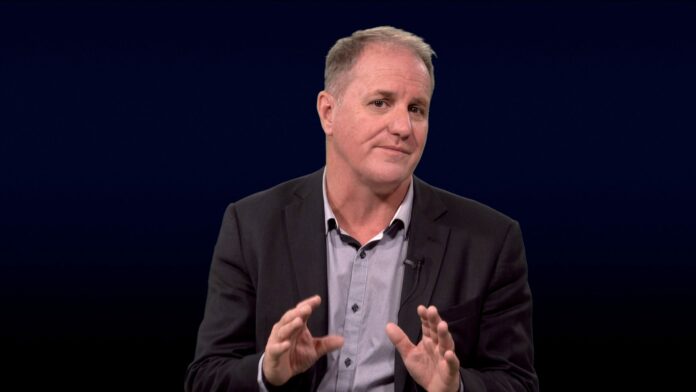Like many New Zealanders over the age of 50 I can still vividly recall the 1981 Springbok Rugby Tour of New Zealand. It’s an event remembered, not for the game of rugby, but because it divided New Zealander against New Zealander, kiwi against kiwi. At stake was the issue of whether we should be playing rugby against South Africa, a nation that was (at the time) operating under a policy of deliberating separating its people based on their ethnicity – where Caucasians held a privileged position and where other races were subjugated based on skin colour.
Then Prime Minister Rob Muldoon, probably recognising that his supporters were generally more likely to be rugby supporters, allowed the tour to go ahead – and in doing so, he lit the fuse on a conflict which led to violence and rioting up and down the country. So passionately held were the views on either side that protestors attempted to stop games (even occupying the field at a game in Hamilton). Elsewhere, there were attacks on anti-tour protestors by rugby fans, and the Government even established a special unit to break up protests, called the Red Squad, which employed practices that we almost certainly wouldn’t tolerate today.
I was 17 at the time and, in my naïveté, probably fell on the side of those wanting the tour to go ahead – but as I grew older I recognised the utter depravity of a system that divided people based on race and, with the benefit of age and wisdom, if I had my time again I would unquestionably add my voice to those protesting any sporting contact with South Africa at that time.
I’m raising this now because of the growing claim that Israel is operating under a similar system to that which existed in South Africa at that time. If it’s true, it should be absolutely condemned, and the world community should do everything in its power to bring about the end of the practice.
But is it true? First, let’s review what South Africa was actually doing:
- Their system, which was based on a policy known as ‘Apartheid’ (an Afrikaans word which literally means ‘apartness’ or ‘separation’) was in place between 1948 until the early 1990s.
- It was characterized by an authoritarian political culture which ensured that South Africa was dominated politically, socially, and economically by the nation’s minority white population who, by statute, had the highest status – followed by Asians and Coloureds, then black Africans.
- In practice, apartheid was delineated into petty apartheid (which entailed the segregation of public facilities and social events), and grand apartheid, which dictated marital, housing and employment opportunities by race.
- Blacks couldn’t vote, marry outside their ethnicity or even use facilities which might be used by whites – and while Apartheid is now gone, its stain has left an indelible mark reminding us of the extent of mans capacity for inhumanity to man.
The suggestion that these practices exist in Israel, or that the term apartheid can be applied in any way, to that nation, is beyond ludicrous and is simply a reminder of the uninformed stupidity which masquerades as outrage in much of the protest aimed at Israel. Here are the facts:
- Israel is a constitutional democracy in the same style as New Zealand, Australia, the US, Canada, and most of Europe – and the only such democracy in the Middle East.
- All adult Israeli citizens over the age of are entitled to vote regardless of ethnicity, gender, religious belief, or political creed.
- There is no form of segregation in Israel – nor any barriers to advancement within Israeli society. Arab citizens (for example) hold positions of power at all levels of society – and there is an Arab political party in Parliament which is currently part of the ruling Coalition Government.
- There are no prohibitions to intermarriage, any more than there are here in New Zealand – and the promotion of civil rights of all kinds are as advanced and prolific as they are anywhere in the west.
So let’s be clear – use of the term ‘apartheid’ to describe the system in Israel isn’t just a hyperbolic exaggeration used to make a political point – it’s an utterly offensive slur with absolutely no foundation in fact.
So why does the claim persist? Mostly, probably, because it’s an easy way for the enemies of Israel to score a cheap point through the use of a powerful and emotive term. But to be fair, there may be some who genuinely misunderstand the exact status of the relationship between Israel and its neighbouring territories – which is hardly surprising, as it’s so complicated that even experts on the topic argue over precisely who is responsible for what.
However, what we can generally agree on is the fact that the West Bank and Gaza are self-governing territories. Israel certainly imposes some restrictions on the borders with these territories for security reasons, but their leadership – the Palestinian Authority in the West Bank and Hamas in Gaza – are responsible for the comfort and wellbeing of their own people.
Sadly, neither provides anything like the freedoms and rights that Israeli citizens enjoy, to these people and, instead, Palestinian politics is dominated by the rivalry between the two leadership groups.
Sadly, there hasn’t been a free election for Palestinians since 2006 when Hamas won control of Gaza – and when the elections scheduled for 2021 looked like they would hand a victory to Hamas, the PA cancelled them.
It’s much easier for Palestinian leaders to deflect their responsibilities by blaming Israel for their woes and the claim of ‘apartheid’ is simply another lie and an attempt to de-legimitise Israel in order for the Palestinian leadership to avoid sorting out their own mess.
It is the Palestinian people who lose out in the long run.



